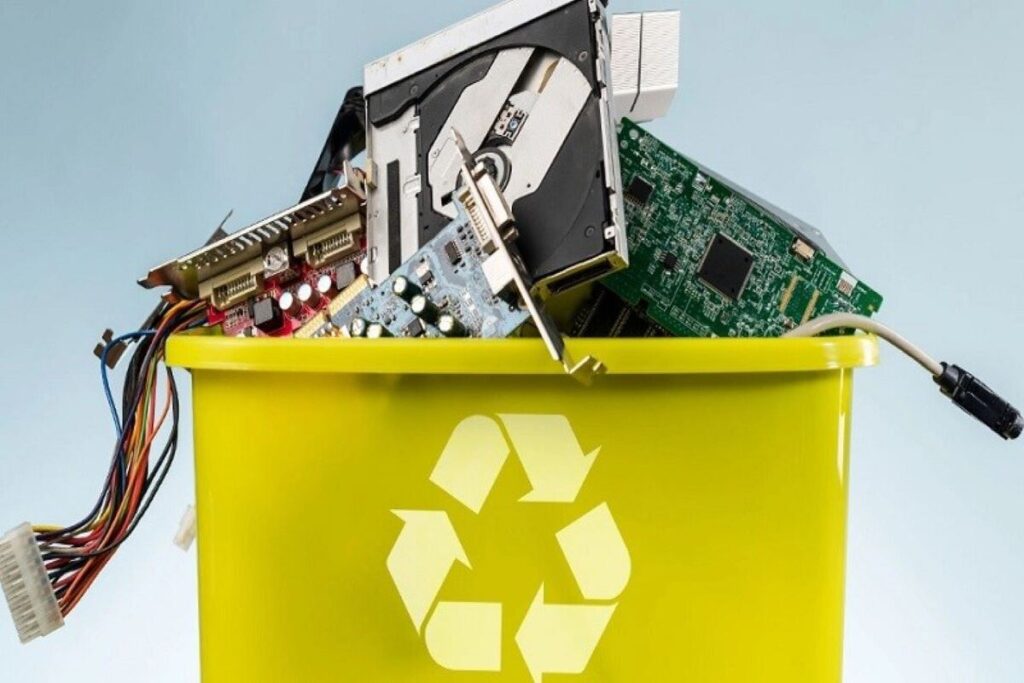Folks and organizations that accumulate a lot of electronic waste need tips on recycling electronics properly. Before going institutional, let us start with our responsibilities for sustainable disposal of electronic waste and e-waste recycling. Do you remember swapping out an old electronic device for a sleeker, newer gadget? How did you handle the long-standing pile of electronic clutter taking up space in your garage?
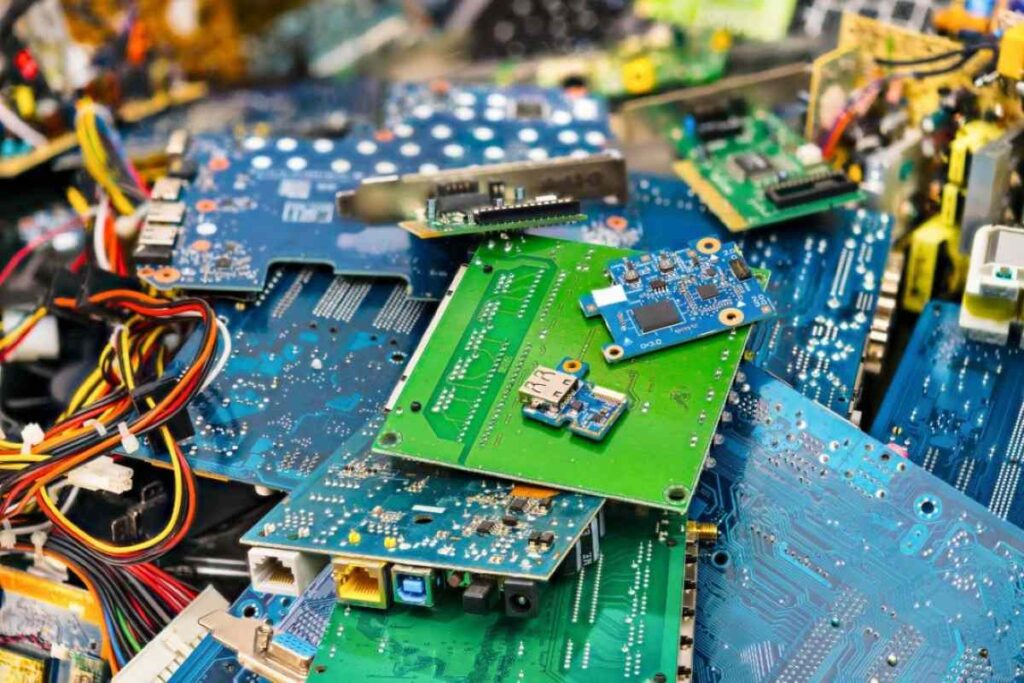
Do you know what happens to discarded electronic devices? Introspection on the preceding questions is essential as it illuminates our awareness of e-waste. Every technology user should understand the environmental impact of hazardous materials in some electronic devices and the best practices for discarding them after their helpful or relevant life.
While there is no global consensus on what should happen to electronic waste, we will share some options and tips on its sustainable handling. As we mentioned earlier, the environmental impact of e-waste affects both individuals and corporate bodies. So, it’s high time we took collective responsibility.
Is It Necessary to Recycle Electronic Waste?
Most people familiar with the manufacture of electronics and the materials used in some of these processes understand the severity of e-waste handling. However, for folks who know no better than tossing an electronic device in the trash after getting a new one, permit us to introduce you to e-waste recycling.
While that device may be obsolete and old junk to you, some organizations may find a couple of its components helpful. On the extreme, old electronics subject to device destruction may also contain hazardous materials and require supervised procedures to discard them correctly.
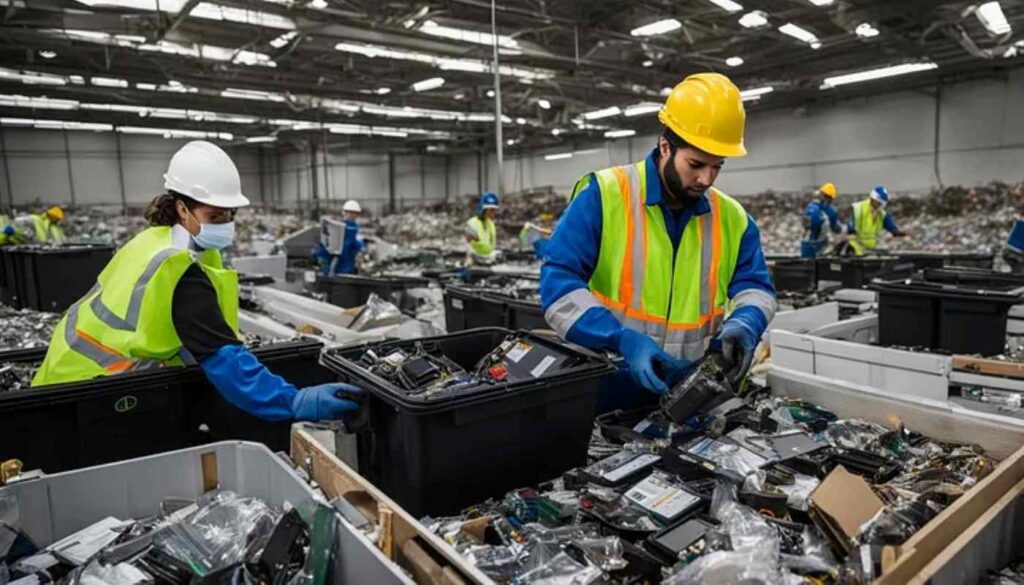
In addition, the circuit boards of most electronic devices contain trace amounts of valuable elements like gold, silver, platinum, and palladium. Recycling programs design meticulous processes for extracting these rare earth elements.
However, the benefits of responsible recycling of electronic waste are far-reaching. For example, gold mining degrades the environment. Recycling programs would save the environment by repurposing the valuable elements in electronics instead of allowing them to rot away in a dump pile.
ALSO READ: Electronic Device Hacks to Consider Before Purchasing Gadgets
Types of Electronics That You Can Recycle
If you’re wondering whether the old electronics in your basement can be recycled, the most probable answer is “yes.”
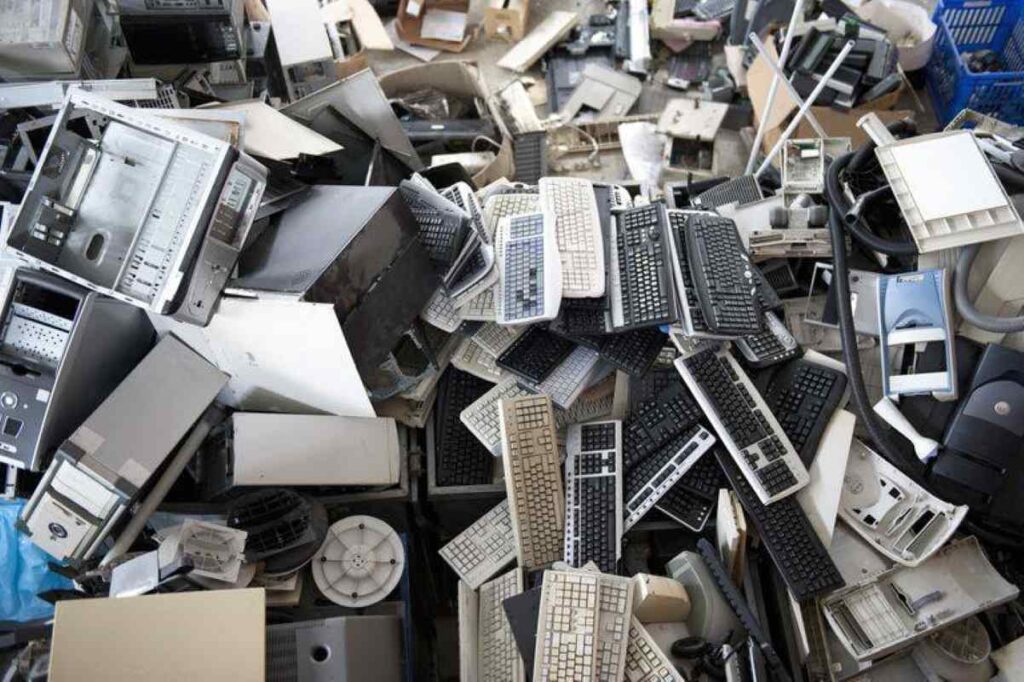
According to Steven Napoli, the ‘uno numero’ at the Electronics Reuse & Recycling Alliance, “Traditional devices that people use daily can be processed and recovered.” By implication, if the electronic in question is a household or personal gadget, it would have a 95 percent likelihood of recyclability. Television sets, tablets, laptops, phones, etc., are electronic devices in this niche.
A Pert Guide to E-Waste Handling
According to Napoli, the United States is one of the handful of countries that have yet to sign the Basel Convention, a UN program established for the responsible recycling and reuse of electronics. So, only roughly half of the US has legislation that addresses e-waste handling.
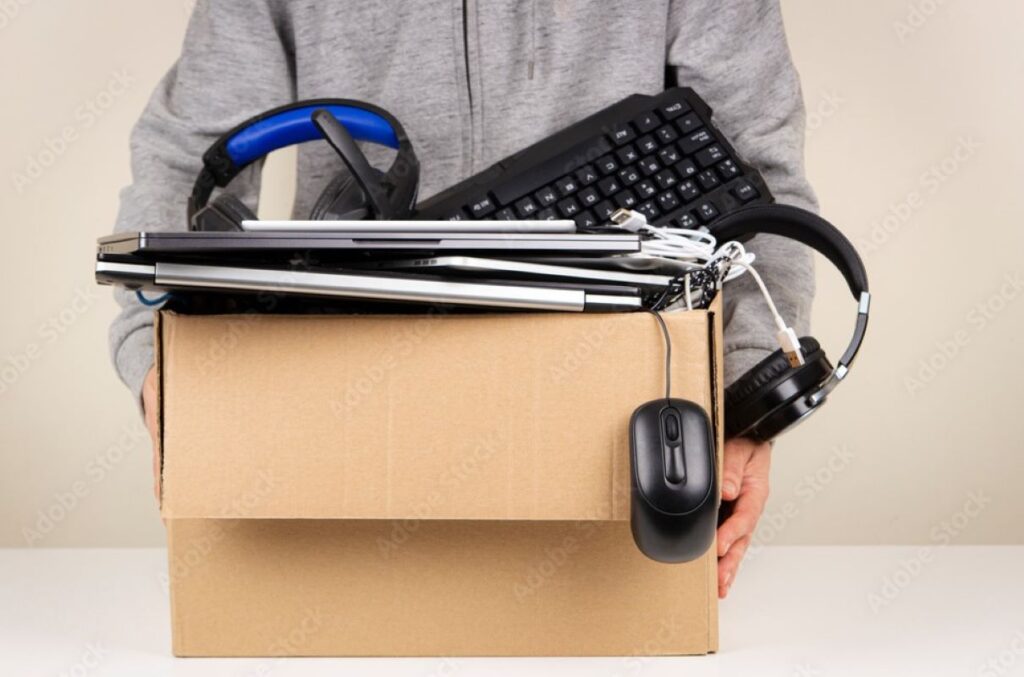
There are several options for handling electronic waste. You could send it to organizations that destroy devices safely. Alternatively, you could donate old devices to EPA-certified programs that extract valuable materials or to entities that repurpose or reuse electronics.
Safe and Sustainable Disposal Systems for Electronic Waste
However, individuals and organizations may want to rid themselves of a pile of damaged or old electronics. The generic tips on recycling electronics the right way once the decision is set in stone are highlighted below:
1. Wipe Off Personal or Institutional Data
Before discarding those electronics, it may surprise you that some entities repurpose discarded electronics by simply replacing damaged or obsolete parts. Consequently, your personal or institutional data may still be accessible, so do well to wipe them before donating old devices.
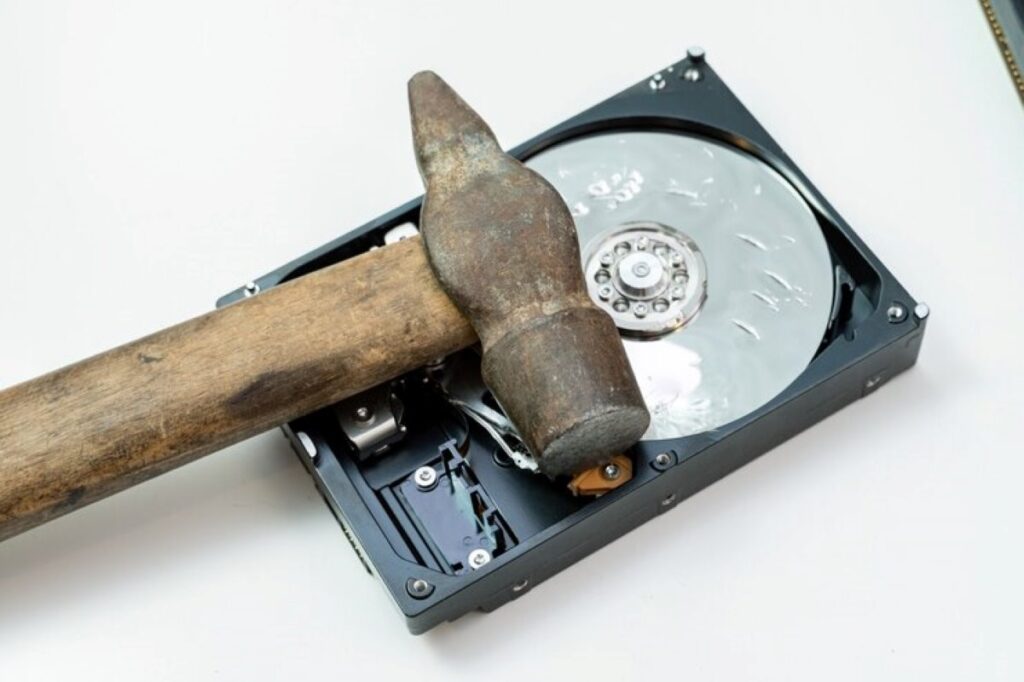
If the electronic device being disposed of is a computer with sensitive information, some companies will destroy the hard drives to protect their data.
2. Where To Dispose of Electronics
Once the due diligence of protecting personal data is settled, no rule limits how to dispose of electronics. There are buy-back programs by tech companies like Apple and Google that involve exchanging old or damaged devices for cash. For companies with a large trove of such devices, it becomes a fast way to liquidate assets with zero ledger value.
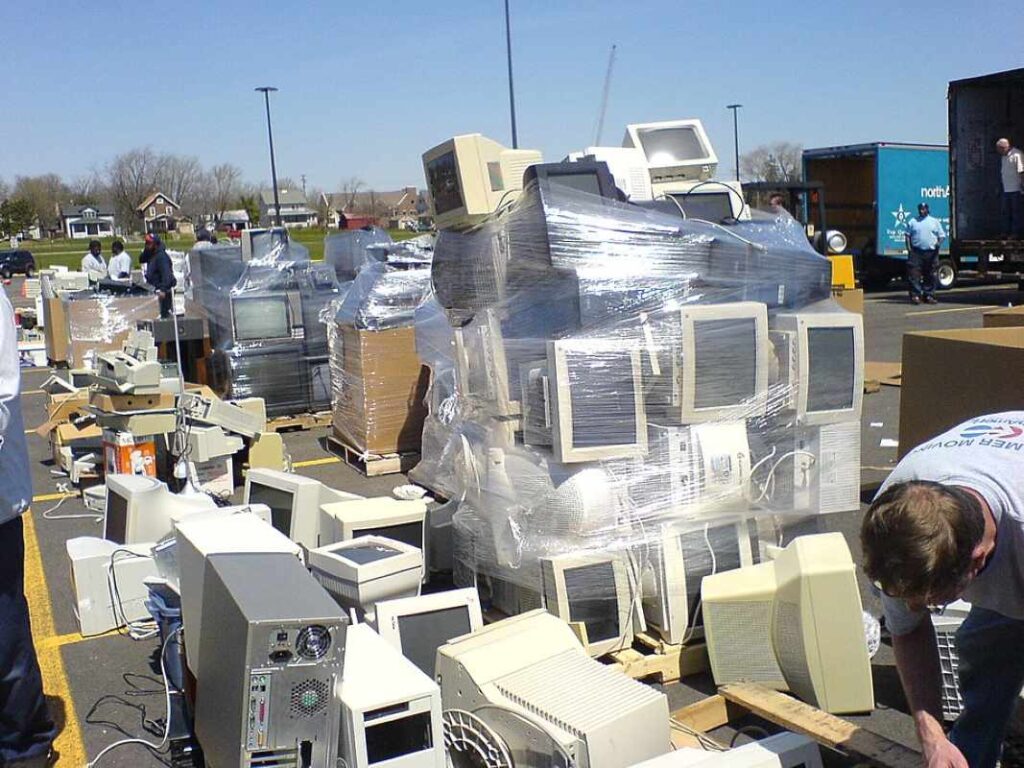
Donate old devices if you are not interested in haggling for cheap change on decommissioned electronics. Less privileged entities will always gladly reuse electronics that big corporations have discarded.
ALSO READ: Top Genius Hacks for Managing Your Electronics
3. An E-Waste Recycling Consultation is Worth the Trouble
If you do not care to donate old devices or find them unsafe for fiddling by another party, you could consult with an e-waste recycling organization.
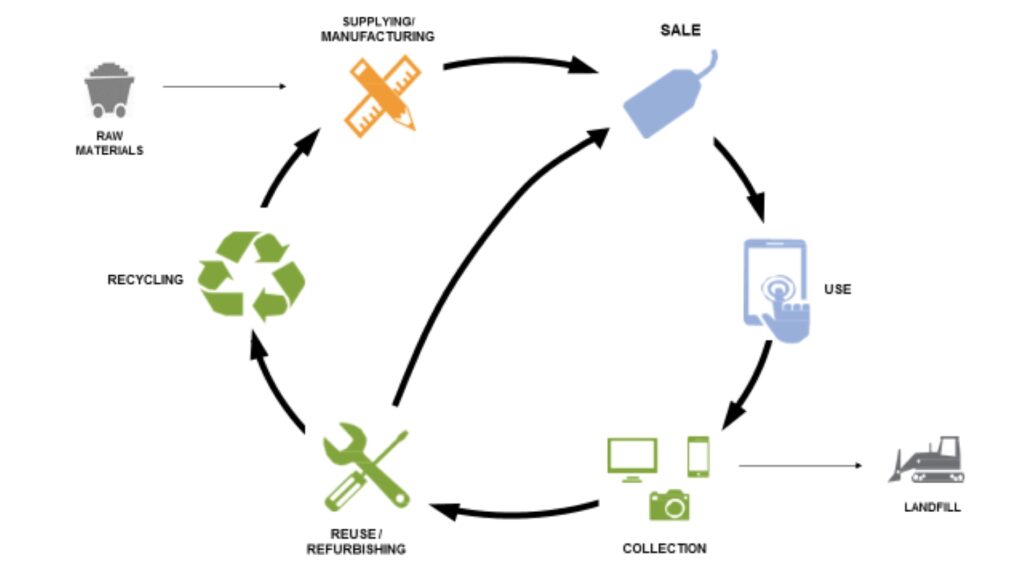
Old electronics should be sent to programs registered by the EPA to ensure regulatory compliance and avoid indictments related to recycling mistakes.
Finally, your electronic waste does more good with the appropriate programs that upcycle it into some helpful item than having it populate our landfills. Some of these organizations will deep clean old but functional devices to make them as good as new. Alternatively, be a goodwill ambassador of liberality as you donate old devices to charity. These tips on recycling electronics the right way could be your lifesaver; endeavor to adopt them.
